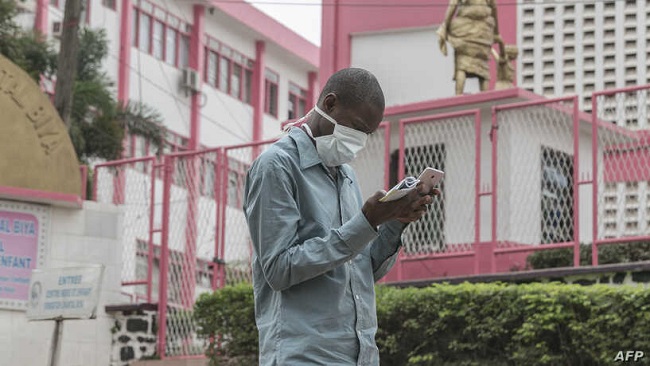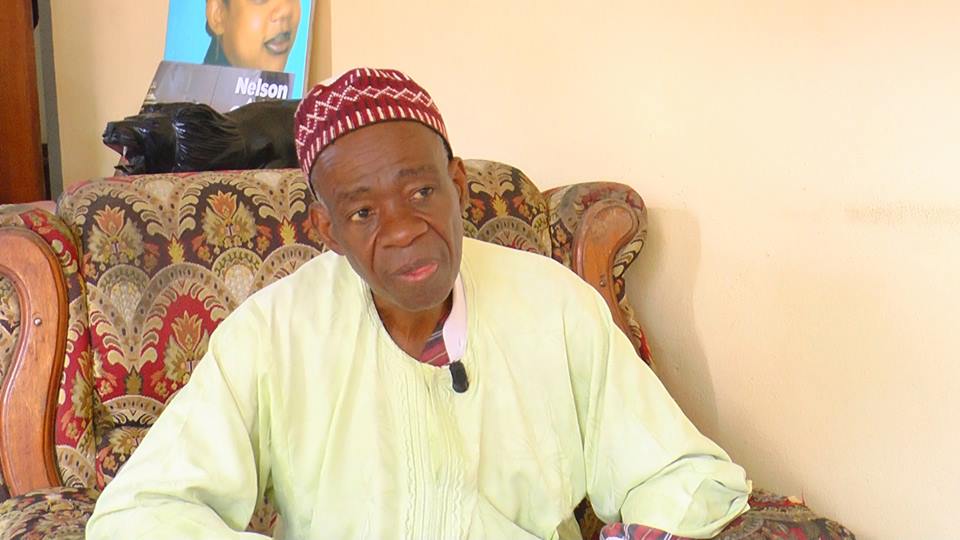Yaounde Says COVID Worsens Diabetes Burden
This year’s U.N. World Diabetes Day on Nov. 14 was observed in Cameroon with medical staff all over the central African state encouraging those with the disease to return to hospitals for treatment. Health workers say patients scared of COVID-19 stopped going to hospitals for control of their glucose levels. Although the disease is spreading […]


This year’s U.N. World Diabetes Day on Nov. 14 was observed in Cameroon with medical staff all over the central African state encouraging those with the disease to return to hospitals for treatment.
Health workers say patients scared of COVID-19 stopped going to hospitals for control of their glucose levels. Although the disease is spreading rapidly due to Cameroonians’ sedentary lifestyles, experts say, health workers complain that 80% of patients do not know they have diabetes.
A medical doctor told scores of people at the General Hospital in Cameroon’s capital, Yaoundé, to go to the nearest hospital if they get tired and thirsty regularly, drink water and urinate frequently. She said while at any hospital, such people should immediately ask for their blood sugar levels to be measured.
Diabetes educator Agnes Koki said the campaign is part of World Diabetes Day activities. She said medical staff members want to encourage people to find out whether they have diabetes.
“There were so many people out there without the knowledge of diabetes,” she said. “We educate them on what diabetes is all about, how to feed and so many other things. We do free consultation, free screening.”
Sixty-year-old carpenter Hilary Lingalia said he was diagnosed with diabetes after his wife forced him to go to the hospital. He said the African traditional healers he counted on for treatment from nerve pain, a diabetes-related condition, instead told him that he had been bewitched.
“It was a strange sickness to me because my father did not have diabetes nor my mother,” he said. “In 2014, I had this complication on my leg until it was amputated. To face the reality, I accepted it.”
3 million cases
Cameroon’s National Diabetes and Hypertension Program reports that the prevalence of diabetes has increased from fewer than 1 million cases in 2010 to more than 3 million in 2020. The report says 80% of people living with diabetes are currently undiagnosed. Cameroon also blames sedentary lifestyles for the increase in the disease.
Solange Essunge leads an association of diabetic patients in Yaoundé. She says many people fear being screened for diabetes because they believe the disease kills slowly and cannot be treated.
She said the Association of Diabetic Patients she heads wants the government to immediately provide free treatment to everyone whose sugar level is very high. She said the government and donor agencies should show more commitment to the well-being of patients by making treatment available in all hospitals and supplying all patients with blood glucose meters so they will always be able to measure their blood sugar levels.
Essunge said that since Cameroon reported the first cases of the coronavirus in March, many diabetic patients have avoided going to the hospital for fear of contamination. She said a majority of the more than 500 people who have died of COVID-19 in Cameroon were diabetic patients.
Vincent de Paul Djientcheu, director of the General Hospital in Yaoundé and official of Cameroon’s health ministry, said people should guard against diabetes by watching their diets and getting regular physical exercise.
He said Cameroonians should work harder toward preventing diabetes because the rapid spread of the disease has severe consequences for patients, their families and the community. He said diabetes drains family resources and makes people poorer. He urged patients to return to hospitals for routine checks and said patients should make sure they always respect COVID-19 prevention measures, such as wearing face masks, regularly washing their hands, and keeping 2 meters apart.
Djientcheu said people should stop considering diabetes a death sentence because they can live with the disease if they control their diet and take regular treatment.
The United Nations instituted World Diabetes Day in 2007 in recognition of the urgent need to improve human health, provide access to treatment and health care education.
The U.N. says globally, 422 million adults were living with diabetes in 2014, compared to 108 million in 1980, and that diabetes prevalence has risen faster in low- and middle-income countries than in high-income countries.
Source: VOA

















